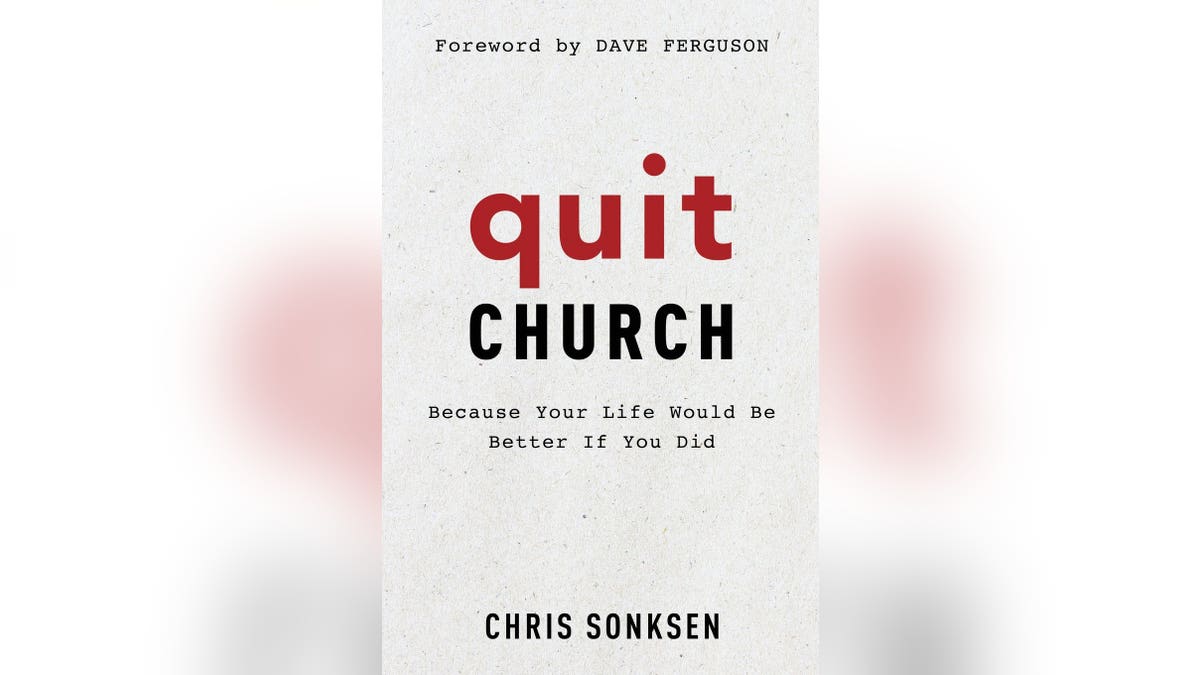
Americans change churches like home owners change air filters – throw a little dirt or time in a certain direction and it’s time for a change.
According to Pew Research, there are four primary reasons why people change churches:
? Sermon quality
? Welcoming environment/people
? Style of worship
? Location
The translation is clear – Americans treat church like a product to consume instead of as a family to belong. When we treat church like a product, we consume until our needs are no longer met. When we treat church like a family, we fundamentally understand there are no perfect churches. Like family, every church comes with broken people. That includes the church leadership.
Most of the time when someone leaves a church, it’s because a minor issue has grown into a monumental issue to the person or people involved.
In all my years of pastoring, I’ve never heard of someone who left a church because the pastor suddenly changed his theology and adopted snake handling worship practices. If a pastor suddenly changes his theology and tells the church to sell everything and move to the mountains for Jesus’ return (insert date here and beware of Kool-Aid), you should leave.
Too often people leave a church because of disagreement, not getting their way, or because the sermons are no longer deep enough. Often when we dig into the reason the sermons are not deep enough, it ultimately goes back to the person being offended or not having their faulty theologies endorsed from the pulpit. The same pastor who was previously deep enough becomes shallow once there is an offense. It’s incredibly difficult to hear from God in a sermon when we are offended by the person delivering the sermon.
Before we quit church, we need to make sure we take the separation seriously. Church is not a product to consume. It’s a family to which we belong – big difference. When we leave, we make a statement. When we leave because we don’t get our way, it will set a poor example for others.
Need proof? Just ask the Pharisees. They had audience with the Son of God but could not get past their offenses. Perception can impact the ability to trust. If we do not trust the person, we will reject his message, even if the message is true.
As Christians, we should examine our motives before we make a decision. Before we quit church, we need to check our motives. Are we running away from a problem? Is there an issue between us and someone else? If so, have we followed Matthew 18 and talked to the person instead of about the person?
Frustration is never content until it’s expressed. If we have frustrations that we have not dealt with, those same frustrations will most likely follow us to the next church.
Before we leave, have we done everything we can to make peace in the situation? As a pastor, I know how difficult it is to express frustrations with church leadership. It may be difficult, but Christians are called to a higher standard. Without attacking, have we expressed our concerns with the church leadership? Are we willing to get our hands dirty and become a part of the solution? Have we prayed about leaving? These are tough questions that force us to get real.
Before we quit church, we need to make sure we take the separation seriously. Church is not a product to consume. It’s a family to which we belong – big difference. When we leave, we make a statement. When we leave because we don’t get our way, it will set a poor example for others.

So, when is it OK to quit church?
1. It’s OK to leave if God calls us to leave. Sometimes, Christians pull the “God card” when it’s not really God’s call. Don’t use God as a scapegoat. When God speaks, it’s almost always scary, challenging, and a call to die to self. If God is truly calling us to leave, then no one should stop us from obeying.
2. It’s OK to leave for family and marriage. With online dating, a single Christian’s pool of people has significantly increased outside the local church family. When two people from different churches get married, how do they decide whose church to attend? One of the two involved will be leaving his or her church, and that is OK. It may even be healthy to select a neutral church and begin your new family in a new church.
3. It’s OK to leave a church if you have moved too far away to conveniently drive to your church. It’s easy to become a consumer in a church that is far away. It is difficult to be an active participant of a church that is more than a 30-minute drive. It’s really difficult to invite our friends and neighbors to visit our church if it is not close. Find a local church in your community where you can serve and participate.
4. It’s OK to leave if you cannot follow the church’s leadership. This should not be considered lightly. The Book of Acts, records how the Apostle Paul and Barnabas had a sharp dispute. Where there is more than one vision, we have division. We should do everything we can to seek unity. If we have done everything we can and still find that we cannot agree on the vision of the leadership, then we should prayerfully leave.
A dispute does not mean that we leave the church with a critical spirit toward the pastor and staff. If we spread negativity at our church, then the first thing that we should do is STOP! Stop the talk about what we don’t like. Stop negativity generation – it influences others. Negativity breeds more negativity, and our words could destroy God’s work in someone else’s life at that church! Avoid all gossip and talk behind the pastor’s back and just move on gracefully.
5. It’s OK to leave if heresy is being preached. Today, people give the title of heretic to anyone with whom they disagree, theologically. There is room at the table for numerous disagreements. However, heresy undermines the essence of Jesus’ teachings. There are hundreds of issues in which Christians disagree and that’s OK. Not every disagreement is heresy. When the argument changes who Jesus is, move away and bow out – quickly.
Please note: If there is abuse (physical, spiritual, emotional etc.) you should leave a church. If there are unethical practices, then leave quickly. For the vast majority of people, abuse and unethical practices are not the reason, for leaving a church.
Church is a family in which to unite more than it is a product to consume. We must understand that it matters how we quit. When we leave, we impact others. At times, it may even feel like a divorce. When we view church like a family, it will change the way that we leave. If we must leave, separate in a way that honors God and the people you we leave.
